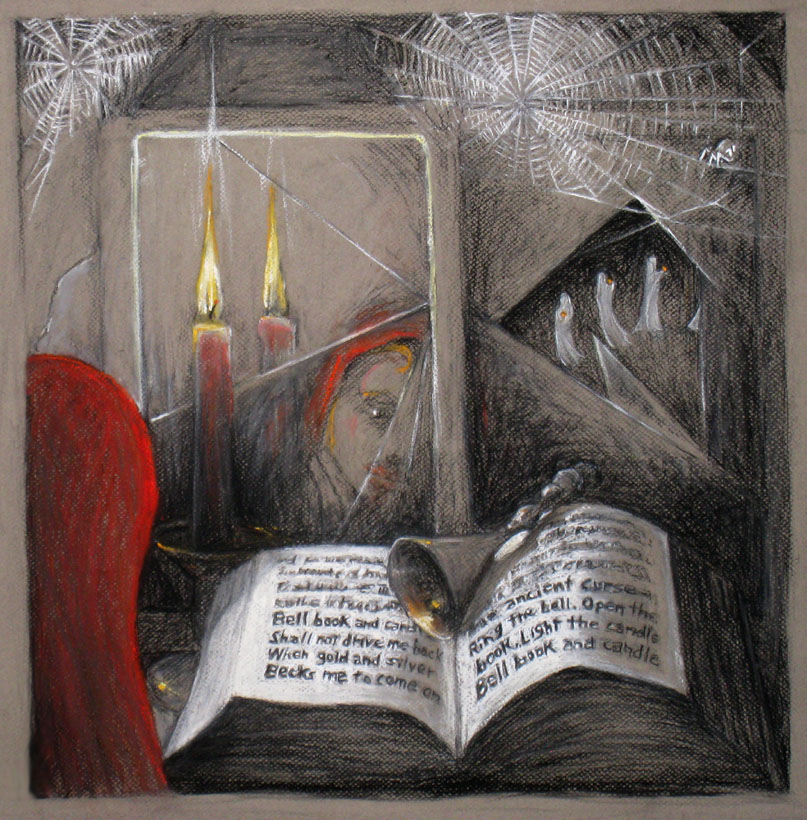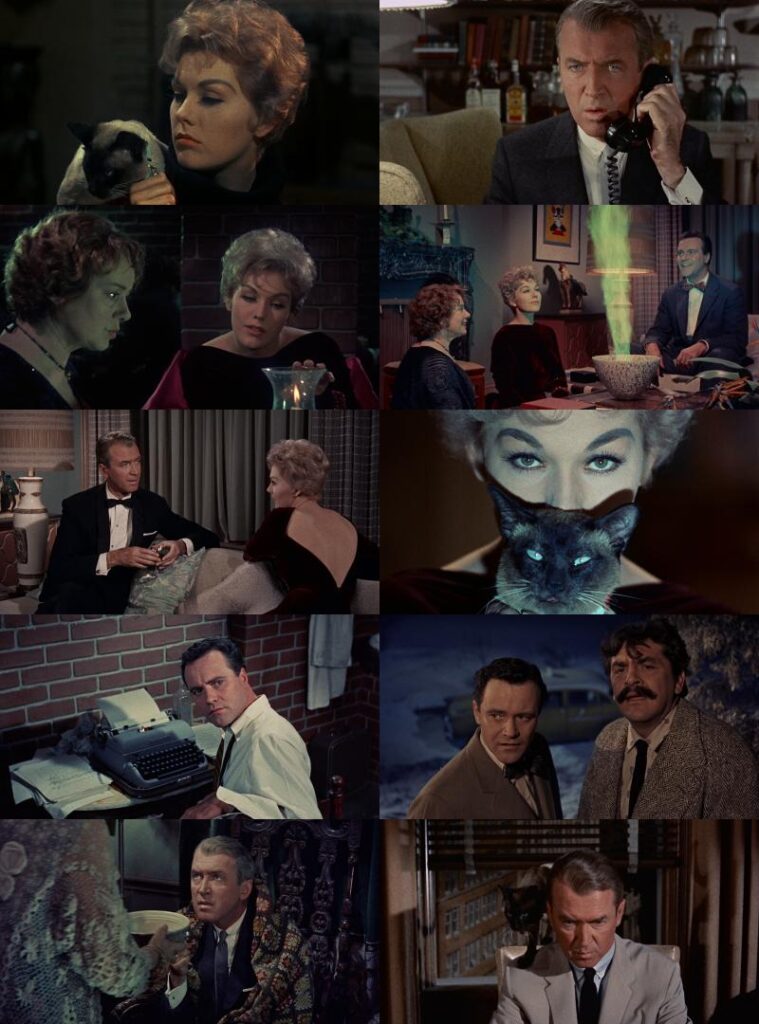
Kate Swol https://kas-art.com/
Ring the bell, close the book, quench the candle.

-
Free Will vs. Fate:
The movie presents a conflict between Gillian’s belief in her own agency and the possibility that her fate, and that of her love interest, is predetermined. Her magic, while seemingly powerful, is ultimately limited, suggesting that even supernatural forces cannot override the choices and emotions of individuals.
-
The Allure of the Forbidden:
Gillian’s character embodies the forbidden and the mysterious, drawing the audience and her love interest, Shep, into her world of witchcraft and magic. This forbidden element adds to the romantic tension and highlights the human fascination with the unknown and potentially dangerous.
-
Manipulation and Desire:
Gillian’s use of magic to manipulate Shep’s affections raises questions about the nature of love and attraction. The film explores the idea that genuine love cannot be forced or coerced, and that manipulation, even with supernatural means, can ultimately lead to destruction.
-
The Nature of Love:
The film examines the complexities of romantic love, showcasing the challenges and rewards of finding connection and commitment. Gillian’s journey from a powerful witch to a woman in love highlights the transformative power of love and the sacrifices individuals make for it.
-
Psychological Depth of Characters:
The characters in “Bell, Book and Candle” are not simply archetypes; they possess depth and complexity. Gillian’s secretiveness, her emotional volatility, and her struggle to reconcile her witchy nature with her desire for love create a compelling and relatable character. Shep’s journey from a skeptical man to a man in love allows the audience to see the power of attraction and the potential for transformation.
While the film plays around with witch tropes, it also creates a few of its own. One of the underpinnings of this approach is that it casts witches as slightly inhuman and mean-spirited, in keeping with the legends about them. Gillian tends to do whatever she wants, out of spite; her aunt is a liar, a snoop, and perhaps even a thief; her brother is a drifter and an opportunist. Gillian could not stand a girl at boarding school who ‘snitched’ on people, so she found out she hated thunderstorms and caused them daily for months at a time during their last semester. She tells her aunt gleefully that, “By the end of term, she was a wreck.” Upon meeting her again, she deliberately makes her deeply uncomfortable in the Zodiac club (a dive for witches) until she runs out in tears. She bullies her aunt into agreeing not to use magic, sets down rules for others to follow, and casts a spell to sabotage her brother’s attempts to sell his book on real magic (when Shep says he could try a different publisher, her brother looks at her and says, “No, I guess there wouldn’t be much use in that, would there?” to which she icily replies, “No, I doubt it”). – https://charitysplace.wordpress.com
-
The Symbolic Language of the Title:
The phrase “Bell, Book, and Candle” itself carries symbolic weight, representing the rituals of excommunication in the Catholic Church. This association adds a layer of mystery and intrigue to the film, suggesting that Gillian’s actions, though seemingly harmless, could have far-reaching consequences.
-
Pyewacket’s Role:Pyewacket, Gillian’s familiar cat, is more than just a pet; she is a symbol of Gillian’s witchy nature and a reminder of the supernatural world that Gillian inhabits. Pyewacket’s presence adds to the film’s atmosphere of mystery and intrigue.Generative AI – Google.com